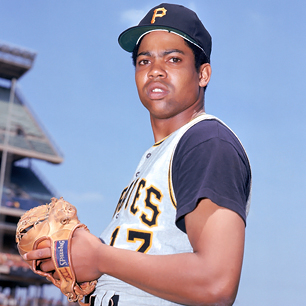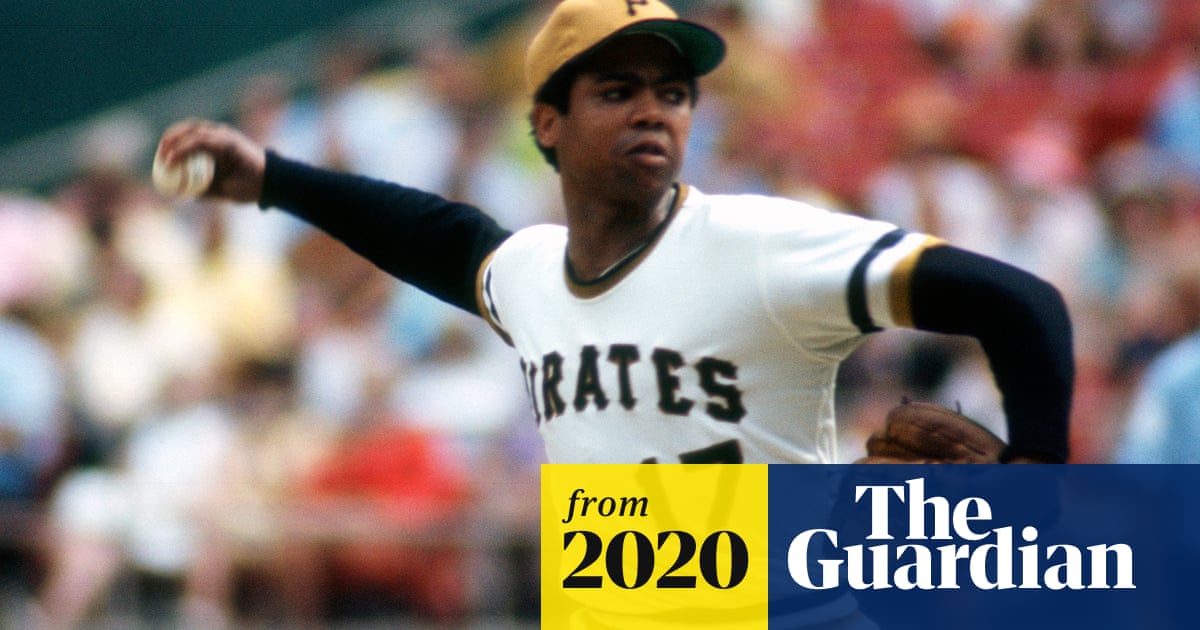mr peabody
Bluelight Crew
- Joined
- Aug 31, 2016
- Messages
- 5,714

Dock Ellis's no-hitter on LSD, 50 years on
by Bryan Armen Graham | The Guardian | 30 Jun 2020
The century-spanning annals of baseball are filled with accomplishments that strain credulity and force us to rethink the outer limits of human potential, like Babe Ruth’s called shot at Wrigley Field or Reggie Jackson’s three home runs on three pitches in Game 6 of the 1977 World Series. But few of these latter-day myths compare with the unthinkable feat that played out on a misty night in San Diego five decades ago this month, when a 25-year-old right-handed starter for the Pittsburgh Pirates named Dock Ellis threw a no-hitter while tripping on LSD.
In some ways, Ellis’s performance for the Pirates against San Diego Padres on Friday 12 June 1970 was not exactly a pitching masterclass. Ellis recorded more walks (eight) than strikeouts (six), hit another batsman, allowed three stolen bases, and was bailed out by highlight-reel plays in the field by second baseman Bill Mazeroski and centerfielder Matty Alou. But consider the circumstances: “I started having a crazy idea in the fourth inning that Richard Nixon was the home plate umpire,” he recounted years later to the New York Times. “And once I thought I was pitching a baseball to Jimi Hendrix, who to me was holding a guitar and swinging it over the plate.”
Somehow, after fanning Ed Spiezio on a curveball in the bottom of the ninth, Ellis completed his long, strange trip without surrendering a single hit in a 2-0 victory. For context: it is one of only 303 no-hitters out of the more than 210,000 games played in major league history since 1876. That alone would secure his place in baseball lore. That he did it while tripping balls almost beggars belief.
This isn’t a story you will hear on a tour of Cooperstown or in any of a hidebound sport’s official histories. To this day, Major League Baseball has only released snippets of this game to the public and it’s unclear whether footage of the game in its entirety exists. Yet in time Ellis’ account of his most unusual triumph has entered the realm between fact and myth where baseball’s most indelible legends call home.
With a day off on Thursday as the Pirates arrived in San Diego for their first west coast road trip of the season, Ellis decided to make the short journey to his hometown of Los Angeles, since the team didn’t play until Friday night. So he rented a car and dropped a tab of acid, timing it so it would hit right as he arrived at the home of a friend’s girlfriend. “What’s wrong with you?” she asked upon his arrival.
“I’m as high as a Georgia pine,” Ellis said.
The old friends caught up over heroic amounts booze and marijuana until Ellis drifted off to sleep. He dropped more acid after waking from what he thought was a catnap, believing it still to be Thursday. That’s when his friend entered the room with a newspaper in hand and an unmistakable look of concern: not only were the Pirates scheduled to play a doubleheader that day, but Ellis was scheduled to pitch. In four hours. In a different city. Ellis’ immediate reaction, as he recalled it: “What happened to yesterday?”
The time was 2pm. Ellis hopped a taxi to the airport and bought a $9.50 ticket for a 3.30pm flight to San Diego, arriving an hour later and making it to the ballpark in time for the 6.05pm first pitch.
“I can only remember bits and pieces of the game,” Ellis recalled in 1984. “I was psyched. I had a feeling of euphoria. I was zeroed in on the [catcher’s] glove, but I didn’t hit the glove too much. I remember hitting a couple of batters, and the bases were loaded two or three times. The ball was small sometimes, the ball was large sometimes, sometimes I saw the catcher, sometimes I didn’t," he said.
“Sometimes, I tried to stare the hitter down and throw while I was looking at him. I chewed my gum until it turned to powder. They say I had about three to four fielding chances. I remember diving out of the way of a ball I thought was a line drive. I jumped, but the ball wasn’t hit hard and never reached me.”
Ellis claimed to have pitched every game of his career under the influence of something, whether alcohol or the uppers such as Benzedrine and Dexamyl that were popped in major-league clubhouses like Tic Tacs during the 70s, but he kept the LSD secret close to his chest for years. He first disclosed it in the draft of a 1976 biography he collaborated on with friend Donald Hall, the former Paris Review poetry editor and future US poet laureate, but asked that it be removed from the final manuscript, lest he invite the wrath of George Steinbrenner, the buttoned-down owner of the Yankees, with whom he had just signed. Only after a 1984 interview with Bob Smizik of the Pittsburgh Press did Ellis’s account finally enter the public record, trickling quietly into the zeitgeist of a pre-internet world.
Shortly before he died of cirrhosis in 2008, Ellis sat down with NPR’s Donnell Alexander and Neille Ilel for a final interview about the LSD no-no. The animator James Blagden went on to use the audio as voice-over narration for an award-winning short film that posthumously elevated Ellis’ peak performance from urban legend to mainstream yarn.
The immensity of Ellis’ psychedelic feat has come to overshadow the on-field accomplishments and social conscience that marked his 12-year major-league career. When he’d first signed a contract with the Pirates out of high school, it had been less than two decades since Major League Baseball was integrated. The free-thinking Ellis was unafraid to voice his opinions on social injustice and institutionalized racism in a sport that was slow to integrate, becoming a vocal advocate for free agency and equality for players of color.
In 1971, he was on the mound when the Pirates fielded the first all-black lineup in MLB history. That same year, Ellis started the All-Star Game and was an important member of the Pittsburgh team that defeated the vaunted Baltimore Orioles in the World Series. He joined the Yankees toward the end of his career and was a key starter on a New York team that captured the pennant in 1976, winning the American League’s Comeback Player of the Year award.
But it was a drive to do good that was a constant in his life after retirement, when he got sober and worked with the Pennsylvania Department of Corrections to rehabilitate black prisoners, helped start the Black Athletes Foundation for Sickle Cell Research and served as the coordinator of an anti-drug program in Los Angeles. Ellis remained sober and devoted the remainder of his life to counseling others with substance use disorder in treatment centers and prisons. He died of a liver ailment at age 63 in 2008.

'I'm high as a Georgia pine': Dock Ellis's no-hitter on LSD, 50 years on
Baseball’s great psychedelic myth took place five decades ago, but the man behind it was far more than an amusing sidenote in the sport’s history
Last edited:

